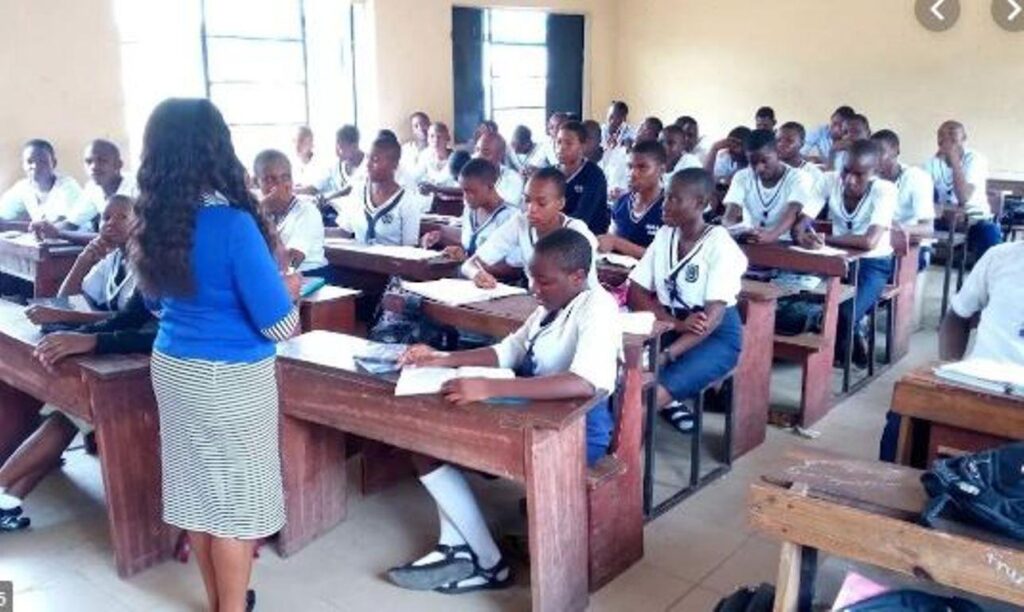The proliferation of private schools (nursery and secondary) in Akwa Ibom State could be hinged on the failure of both public primary and secondary schools in maintaining and sustaining high standards of teaching and learning processes.
This, undoubtedly, has caused most parents to lose confidence in the schools’ system and the society to view the schools as glorified places incapable of producing products who can obtain good results at the school certificate level, gain admission into tertiary institutions and be able to defend their certificates in the choked labour market.
Unlike before 90s, public schools in the state were the thermometers of high academic standards and their products were reckoning pride as they lived up to the societal and parental expectations.
These days, many treat public schools with disdain and the resultant effect of the malaise is that the poor, not-well-to-do parents, civil servants even teachers pool their children and wards to private schools for acquisition of sound academic knowledge.
So far, 1,110 primary schools and 254 secondary schools are established in the state, according to the State Ministry of Education. Conversely, the National Association of Proprietors of Private Schools (NAPPS), Akwa Ibom branch has more than 756 private schools in its kitty.
The near-equal number between the public and private schools shows the slim margin and competitiveness by both to outrival one another in numerical strength, thus stirring up the exponential growth of the private.
And the proliferation among the private has brought about some challenges that affect the moral, ethical and spiritual lives of many pupils and students. Owing to job uncertainty and lack of pension, some teachers and other class of workers in the private do not offer altruistic services to better the lots of their pupils/students and schools.
Unfortunately, the gruesome murder of a five-year-old Hanifa Abubakar by one Abdulmalik Tanko, the proprietor of Noble Kids Academy, Kano State poses an eye opener of the ebbing morals in private schools and the basal treatment accorded human life by some people entrusted with the training of the minors.
Back in Akwa Ibom, the serious beating coupled with laceration (beyond corporal punishment) of an SS 2 student by a management staffer in King Solomon Secondary School, Ewet Housing Estate, Uyo for improper dressing, showed the bestiality of some custodians of the young ones. Some weeks ago, an SS 3 student, Favour Ndaeyo of Monef High School, Ikot Ebom Itam, passed away in a questionable manner linked with absence of nurse on duty coupled with an ill-equipped clinic to attend to her as at 10 p.m.
This is why we want to call on Akwa Ibom government like her counterpart- Kano Government to recertify private schools in the state. There is no gainsaying that some officials of Ministry of Education, who go on inspection before approval is given for establishment of the private schools, bend certain rules and cut corners for their lucre.
In this wise, the state government should set up an independent body made of qualified educationists with impeccable character to come with stringent conditions for recertification to include, among others, well-equipped library, proper remuneration of teachers/workers, qualification of teachers with bias in education, standard medical facilities, fixed amount of school fees/other charges, field for football, lawn tennis, table tennis and other sporting activities, qualified school counselors, standardized school curriculum approved by the Ministry of Education, teaching of Akwa Ibom local dialect and a chapel for daily devotion.
We want to call on the state Ministry of Education to churn out a uniform moral code for all private school proprietors to adopt in checkmating anti-social behaviours among some students. It is alleged that some of the schools like the public ones are breeding grounds of secret cultists, drug addicts, lesbians and homosexuals. Where students are suspects, the school authority should not waste time in sending the culprits away to avoid ‘poisoning good waters.’
In fact, the schools should ban the students coming into their compounds and boarding houses with I-phone, Android or other browsable telephones to check distraction as well as temptation of some browsing pornographic and ‘negative sites in the internet.
It is better for the government to return to the drawing board by laying more solid foundation for the young ones so that they could imbibe sound educational standards and moral ethos as they grow up. Where the foundation is shattered, then the larger society is imperiled in the desert of development and the people are endangered species.

